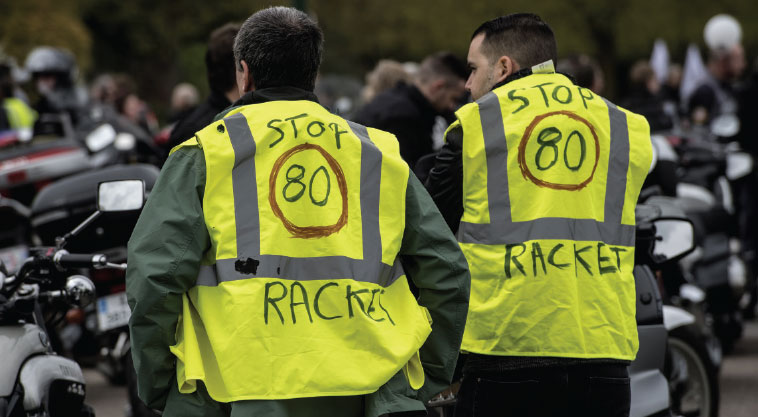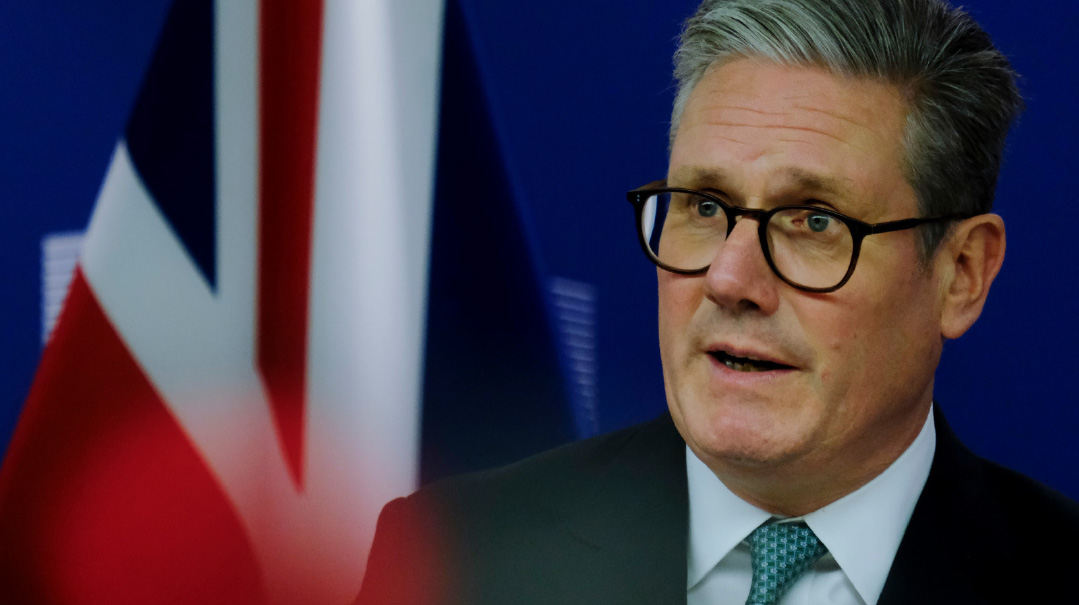Yellow Jackets Swarm across France


Yellow-jacketed demonstrators in France protesting steep tax hikes on fuel pose a sudden major challenge to Emmanuel Macron’s presidency, and threaten to unleash forces that would attack the EU — the world’s largest economic and political bloc — from within.
The “Yellow Jacket protests,” which take their name from the Day-Glo vests that French law requires all drivers to carry, erupted on November 17 in response to fuel tax increases to take effect in January 2019, which Macron announced were intended to combat global warming. French motorists, who already pay around $6.28 per gallon of diesel and $6.26 per gallon of gasoline, would see costs go up $0.28 and $0.12 per gallon, respectively.
The first day of demonstrations drew 300,000 people across France. By the second weekend of the protests, numbers were down to about 100,000, but the tenor had changed to general discontent with the high cost of living and a feeling that Macron and the ruling elite are out of touch with common people’s problems.
The third act of the drama played out this week as unrest spread as far as neighboring Brussels. Far-left and far-right activists converged on the French capital, clashing with police and attacking stores. Paris’s iconic Arc de Triomphe was defaced and spray-painted, and police responded with tear gas and water cannon, leaving dozens injured.
French president Emmanuel Macron’s response to the latest showdown was uncompromising. From Buenos Aires, where he was attending the G20 summit, Macron tweeted that “no cause justifies the attacking of police, the looting of businesses, or the defacement of the Arc de Triomphe.” He offered no concessions on the fuel price rises, and a government spokesman said that Macron was considering imposing a state of emergency to prevent further violence.
But according to Jean-Yves Camus, associate research fellow at the French Institute for International and Strategic Affairs (IRIS), Macron’s unbending attitude and failure to grasp the nature of the protests could be his undoing.
“Macron must understand that this is a rejection of him and his policies,” says Camus. “There is a feeling in France that we need to drain the swamps, as President Trump said, and to deal with the fast-widening gap between rich and poor. People are fed up with high taxes and low wages, and Macron was elected by people who genuinely believed he could change the traditional method of governing. But he’s shown that he’s just a younger version of the establishment.”
Opinion polls bear out this analysis and show that Macron, who has a history of haughty, elitist remarks, has misread the mood of the protests. An Odaxa poll conducted last week found that over 70% of French people supported the Yellow Jacket protesters, a number that has steadily risen over the last few weeks. Added to this, Macron’s own popularity has plunged after only 19 months in office. According to a BVA poll last week, just 26% of the French now approve of Macron.
This is an astonishing fall from grace for a president who rode to power by trouncing both of France’s major political parties and winning 66% of the vote. While the protests are unlikely to topple Macron if they stay at their current size, the rage they express could prove explosive in the European elections in May 2019.
“If Macron does not find a quick solution, the far left and far right could take advantage in the European elections,” says Jean-Yves Camus. “That would mean that mainstream parties lose their majority in the EU.”
A powerful anti-EU bloc within the European Parliament in Strasbourg could fundamentally alter the European Union from within, putting brakes on free movement and free trade, which are at the core of the EU’s identity.
After weeks of protests have rocked France, two things are clear. Emmanuel Macron’s tin-eared response to the Yellow Jackets’ cry of economic pain has tarnished his brand, perhaps irretrievably. More seriously for international geopolitics, if he doesn’t get a handle on things quickly, he will go down as the man who remade Europe — just not in the way he’d intended.
(Originally featured in Mishpacha, Issue 738)
Oops! We could not locate your form.













